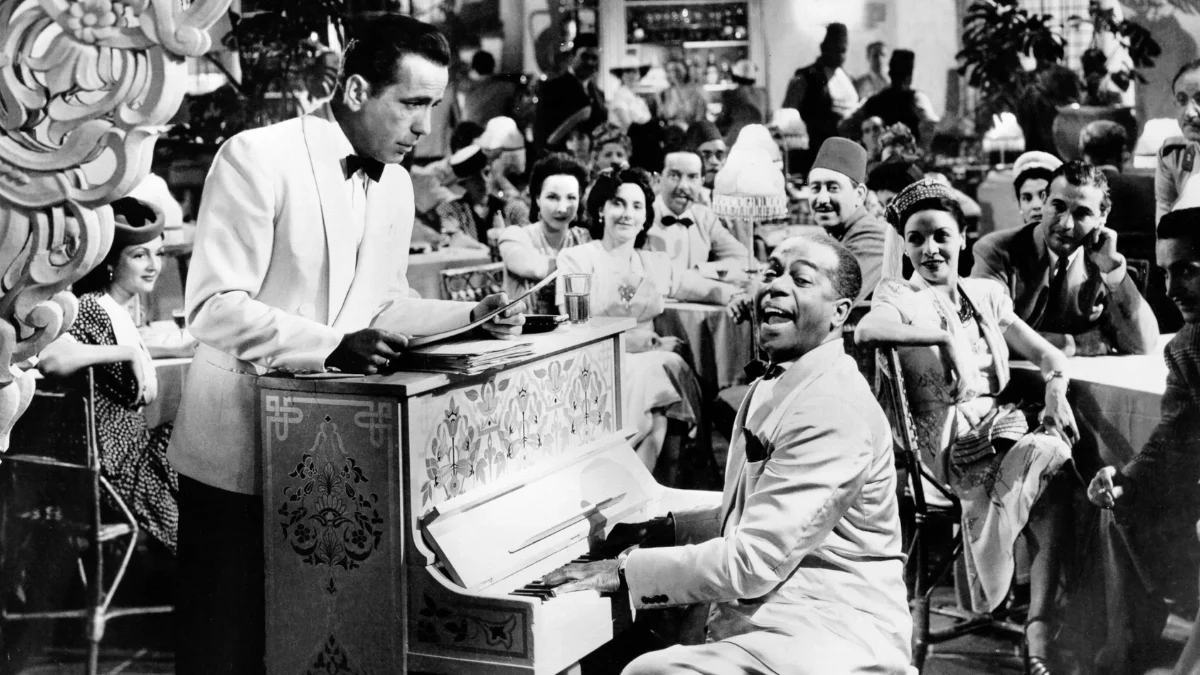
When Casablanca first graced our screens in 1942, it appeared as yet another romantic film set against the backdrop of war. However, over time it transformed into one of the most revered movies in the annals of cinema. With Humphrey Bogart and Ingrid Bergman as its stars, this captivating tale of love, selflessness, and rebellion during World War II resonated deeply with viewers. Its unique mix of romance, drama, and political suspense has kept it fresh and relevant for generations.
The movie ‘Casablanca’ wasn’t just honored with multiple Academy Awards for Best Picture, Director, and Screenplay, but it also left a lasting impact on popular culture. Its lines, characters, and themes are still frequently referenced, analyzed, and appreciated globally. Delving behind the iconic film reveals some intriguing facts about its creation. Here’s a look at ten lesser-known aspects of ‘Casablanca’.
It Was Based on an Unproduced Play
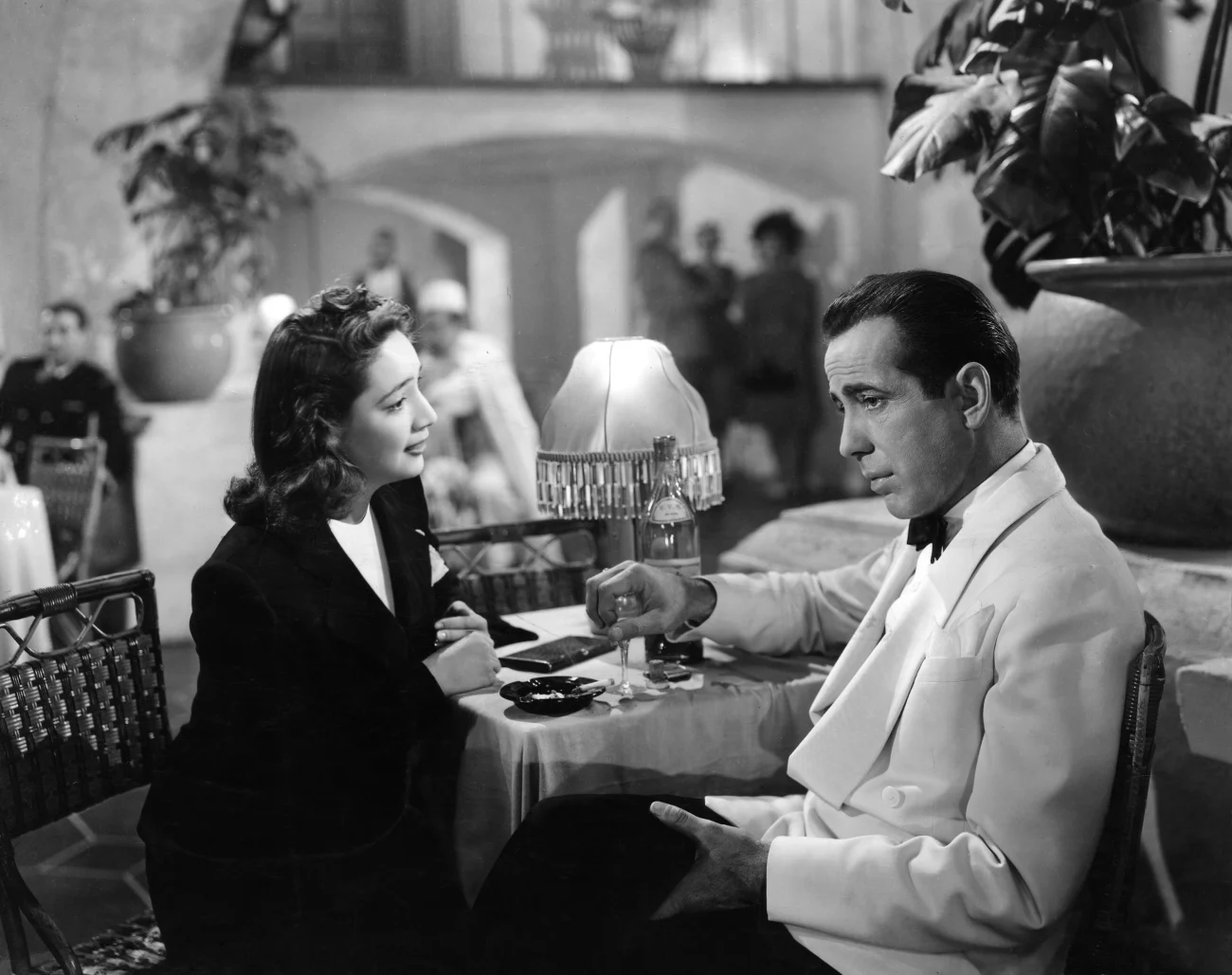
The film, titled ‘Everybody Comes to Rick’s’, was originally scripted as a stage production by writers Murray Burnett and Joan Alison. However, it wasn’t staged. Yet, it piqued the interest of Warner Bros., leading them to adapt it into a movie instead.
In simpler terms, the studio acquired the rights to a production, revamped it as ‘Casablanca’, and adjusted both the title and plotline to better suit moviegoers.
Humphrey Bogart Wasn’t the First Choice for Rick
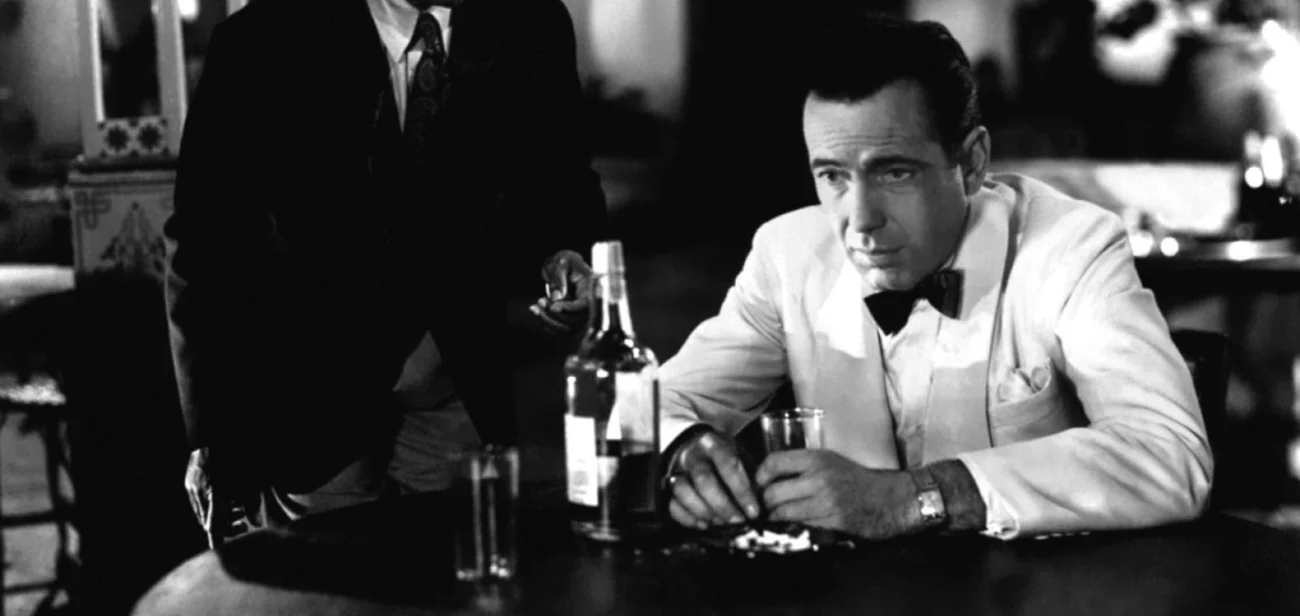
Initially, Warner Bros. contemplated various actors to embody the character of Rick Blaine, with Ronald Reagan and George Raft among the contenders. However, in the end, it was Humphrey Bogart who landed the role, despite his reputation mainly being associated with gangster characters at that time.
The choice turned out to be spot-on, as Bogart’s blend of gruffness and sensitivity essentially shaped the character, making it one of his most memorable roles on screen.
Ingrid Bergman Didn’t Know the Ending While Filming
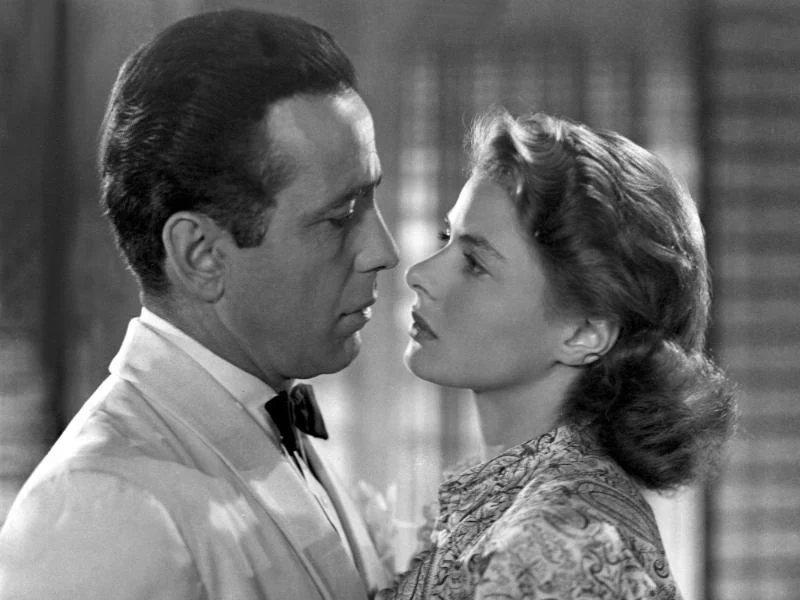
During the entire filming process, the script underwent numerous changes, leaving even Ingrid Bergman uncertain about whether Ilsa would ultimately be with Rick or Victor Laszlo.
The element of doubt only served to heighten the authenticity of her act, as she portrayed real-life perplexity and internal turmoil convincingly within her performances.
The Film Was Released During World War II
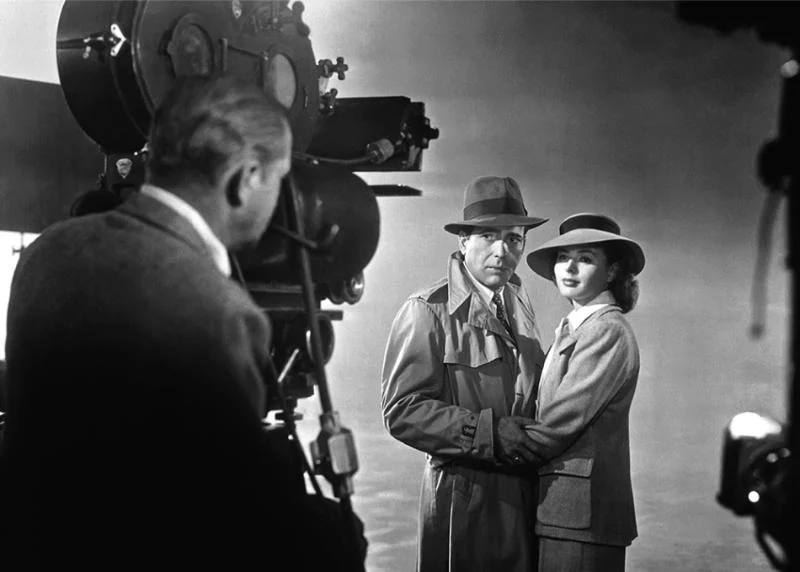
The movie ‘Casablanca’ was first shown to audiences only a few weeks following the Allies’ landing in North Africa. This timing made its portrayed themes of defiance and self-sacrifice especially poignant and timely.
The audience deeply resonated with its uplifting theme of resilience against oppression, significantly increasing its initial appeal.
The Song “As Time Goes By” Was Almost Cut
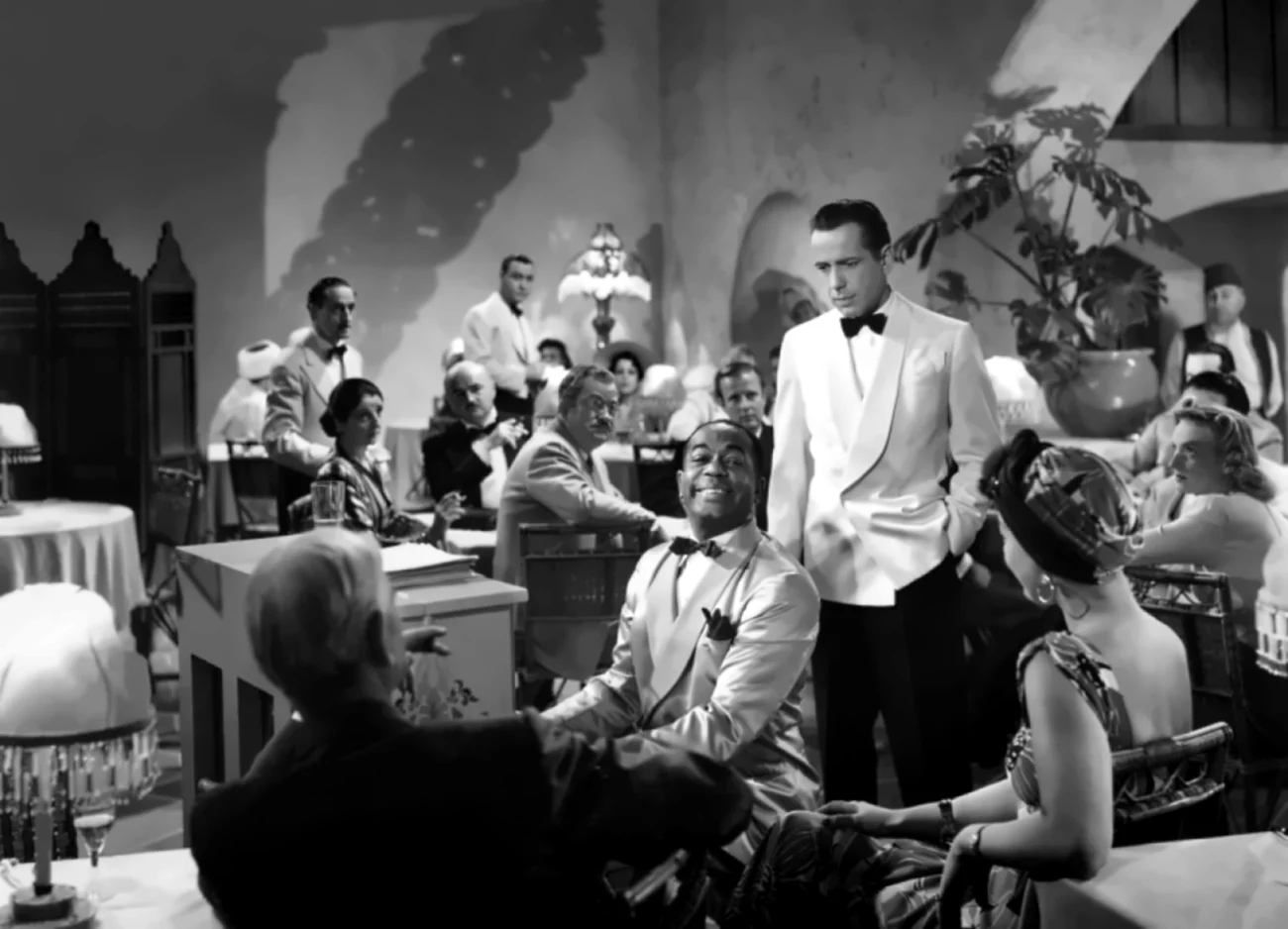
Initially, there was a possibility that the renowned song made famous by Dooley Wilson might have been eliminated from the movie. Max Steiner, the musical composer, had intentions of substituting it with his own original composition instead.
By that point, some pivotal sequences for the film had already been captured alongside the song. Consequently, it persisted and eventually transformed into one of the most iconic movie tunes ever heard.
The Airport Scene Was Created with Miniatures

Due to budget limitations, the thrilling airport scene had to be filmed off-site rather than on location. To convincingly portray a runway, they utilized fog machines, stand-ins for planes made from cardboard cutouts, and model airplanes instead.
The atmospheric illumination and fog concealed the restrictions, transforming the setting into a poignant, unforgettable goodbye moment in cinematic history.
Claude Rains Made Captain Renault Unforgettable

I, as a follower, found myself deeply enamored with the captivating portrayal of Captain Renault by Claude Rains. His character stands out among the supporting roles due to his unique blend of wit and charisma. The balance he struck between cynical undertones and humorous quips was a delightful counterpoint to the weightier themes, making him truly unforgettable.
The actor’s portrayal significantly enriched the movie’s examination of corruption, survival, and ethical dilemmas amidst warfare as well.
Many Cast Members Were Real Refugees

In the movie, numerous characters portraying secondary roles were actual refugees who had escaped from Europe under Nazi occupation. This lent a sense of realism and authenticity to the film.
The emotional singing of “La Marseillaise” clearly showed the characters’ personal struggles with displacement and resistance, mirroring their real-life situations.
The Film Won Three Academy Awards

In 1943, at the Academy Awards ceremony, the film “Casablanca” was honored with three prestigious awards: Best Picture, Best Director (awarded to Michael Curtiz), and Best Adapted Screenplay.
Despite being seen as simply one of numerous movies launched that year, the accolades it received solidified its status as a timeless masterpiece.
Its Legacy Grew Over Time

Over time, following its initial release, ‘Casablanca’ gained an extraordinary reputation, aided by numerous television re-runs, academic studies, and various cultural references. Today, it is widely regarded as one of the most cherished movies in history.
Currently, this tale is regarded as more than just a romantic piece; it’s also seen as an enduring narrative that embodies sacrifice and choosing the right path, even when it requires great effort.
Read More
- 39th Developer Notes: 2.5th Anniversary Update
- Shocking Split! Electric Coin Company Leaves Zcash Over Governance Row! 😲
- Live-Action Movies That Whitewashed Anime Characters Fans Loved
- USD RUB PREDICTION
- Here’s Whats Inside the Nearly $1 Million Golden Globes Gift Bag
- All the Movies Coming to Paramount+ in January 2026
- Game of Thrones author George R. R. Martin’s starting point for Elden Ring evolved so drastically that Hidetaka Miyazaki reckons he’d be surprised how the open-world RPG turned out
- 8 Board Games That We Can’t Wait to Play in 2026
- South Korea’s Wild Bitcoin ETF Gamble: Can This Ever Work?
- TV Pilots Rejected by Networks
2025-09-08 22:42